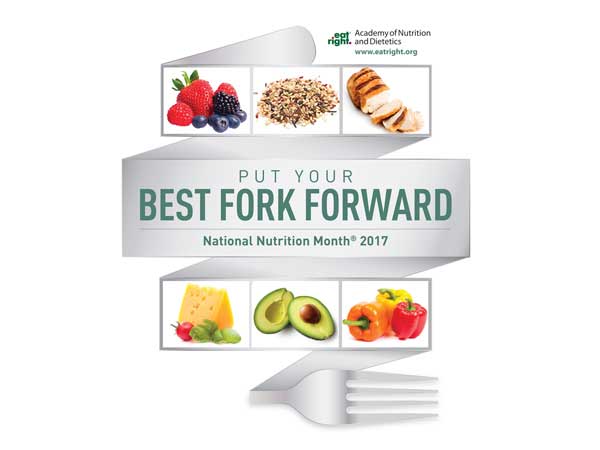Human Nutrition Faculty Offer Advice on Understanding Food Labels
FAYETTEVILLE, Ark. – March is National Nutrition Month, and faculty from the University of Arkansas’ human nutrition program in the Dale Bumpers College of Agricultural, Food and Life Sciences are helping consumers better read and understand nutrition facts on newly designed food labels.
“The main purpose of a label is to provide basic and accurate nutritional information on products,” said assistant professor of human nutrition Jae Kyeom Kim. “New labels are designed and utilized to provide nutrient facts that may influence consumer health issues. One example would be total calories on the label, which is something you want to monitor for weight control or diabetes.”
Many manufacturers are using new food labels featuring larger type for the words “calories,” “servings per container” and “serving size,” a requirement by the U.S. Food and Drug Administration to assist consumers in making better informed food decisions.
“Given the obesity problem in the U.S., I think the hope is that increasing the font size will help and encourage consumers to focus more on these categories in making informed decisions about what to eat,” said Sabrina Trudo, associate professor of human nutrition and holder of the 21st Century Endowed Chair in Human Environmental Sciences.
“Not limited to just the obesity issue, there is also increasing evidence showing obesity is a risk factor of other chronic diseases such as cancer,” said Kim.
Other changes to food labels include “per serving” and “per package” calorie and nutrition information for some multi-serving products that may be consumed in one or multiple sittings; and daily values for sodium, dietary fiber and Vitamin D are now consistent with Institute of Medicine recommendations.
“The previous serving size requirements were from 1993, and things have changed a lot since then in terms of how much people actually eat and drink,” said Trudo. “The new serving sizes, and nutrition information such as calories, will be based more on what people actually eat. Labeling changes are also catching up to the realization that package sizes can affect how much people eat. For packaging that actually contains a couple of servings, the label will be required to provide calories and other information for the whole package since people likely consume it all at once instead of half today and half tomorrow.”
Additional changes include Vitamin D and potassium listed in grams and percentage of daily value; and “calories from fat” removed because research shows types of fat are more important than the amount. Also, a footnote has been revised to better explain the percent of daily value: “The % Daily Value (DV) tells you how much a nutrient in a serving of food contributes to a daily diet. 2000 calories a day is used for general nutrition advice.”
“Labels will also specify ‘added sugars,’ which can help in meeting the 2015-2020 Dietary Guidelines for Americans, which recommend less than 10 percent of calories per day coming from added sugars,” said Trudo. “Eating more added sugars than that while trying to meet various nutrient needs makes it very difficult to not eat more overall calories than are needed for a healthy weight.”
National Nutrition Month is a nutrition education and information campaign created by the Academy of Nutrition and Dietetics to help consumers make informed food choices, and develop sound eating and physical activity habits. The theme for the month is “Put Your Best Fork Forward,” emphasizing everyone can make healthier food choices.
About the Dale Bumpers College of Agricultural, Food and Life Sciences: Bumpers College provides life-changing opportunities to position and prepare graduates who will be leaders in the businesses associated with foods, family, the environment, agriculture, sustainability and human quality of life; and who will be first-choice candidates of employers looking for leaders, innovators, policy makers and entrepreneurs. The college is named for Dale Bumpers, former Arkansas governor and longtime U.S. senator who made the state prominent in national and international agriculture.
About the University of Arkansas: The University of Arkansas provides an internationally competitive education for undergraduate and graduate students in more than 200 academic programs. The university contributes new knowledge, economic development, basic and applied research, and creative activity while also providing service to academic and professional disciplines. The Carnegie Foundation classifies the University of Arkansas among only 2 percent of universities in America that have the highest level of research activity. U.S. News & World Report ranks the University of Arkansas among its top American public research universities. Founded in 1871, the University of Arkansas comprises 10 colleges and schools and maintains a low student-to-faculty ratio that promotes personal attention and close mentoring.
Topics
Contacts
Robby Edwards, director of communications
Bumpers College
479-575-4625,
robbye@uark.edu
Headlines
PetSmart CEO J.K. Symancyk to Speak at Walton College Commencement
J.K. Symancyk is an alumnus of the Sam M. Walton College of Business and serves on the Dean’s Executive Advisory Board.
Faulkner Center, Arkansas PBS Partner to Screen Documentary 'Gospel'
The Faulkner Performing Arts Center will host a screening of Gospel, a documentary exploring the origin of Black spirituality through sermon and song, in partnership with Arkansas PBS at 7:30 p.m. Thursday, May 2.
UAPD Officers Mills and Edwards Honored With New Roles
Veterans of the U of A Police Department, Matt Mills has been promoted to assistant chief, and Crandall Edwards has been promoted to administrative captain.
Community Design Center's Greenway Urbanism Project Wins LIV Hospitality Design Award
"Greenway Urbanism" is one of six urban strategies proposed under the Framework Plan for Cherokee Village, a project that received funding through an Our Town grant from the National Endowment for the Arts.
Spring Bike Drive Refurbishes Old Bikes for New Students
All donated bikes will be given to Pedal It Forward, a local nonprofit that will refurbish your bike and return it to the U of A campus to be gifted to a student in need. Hundreds of students have already benefited.





